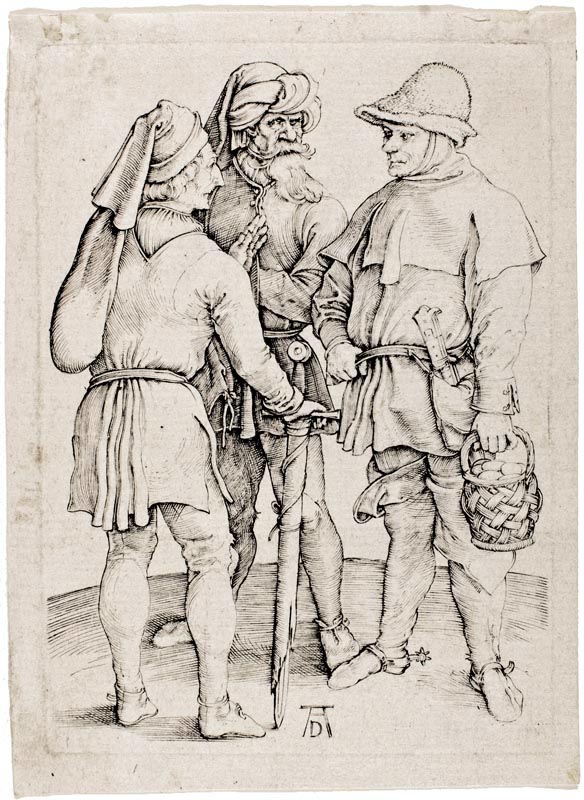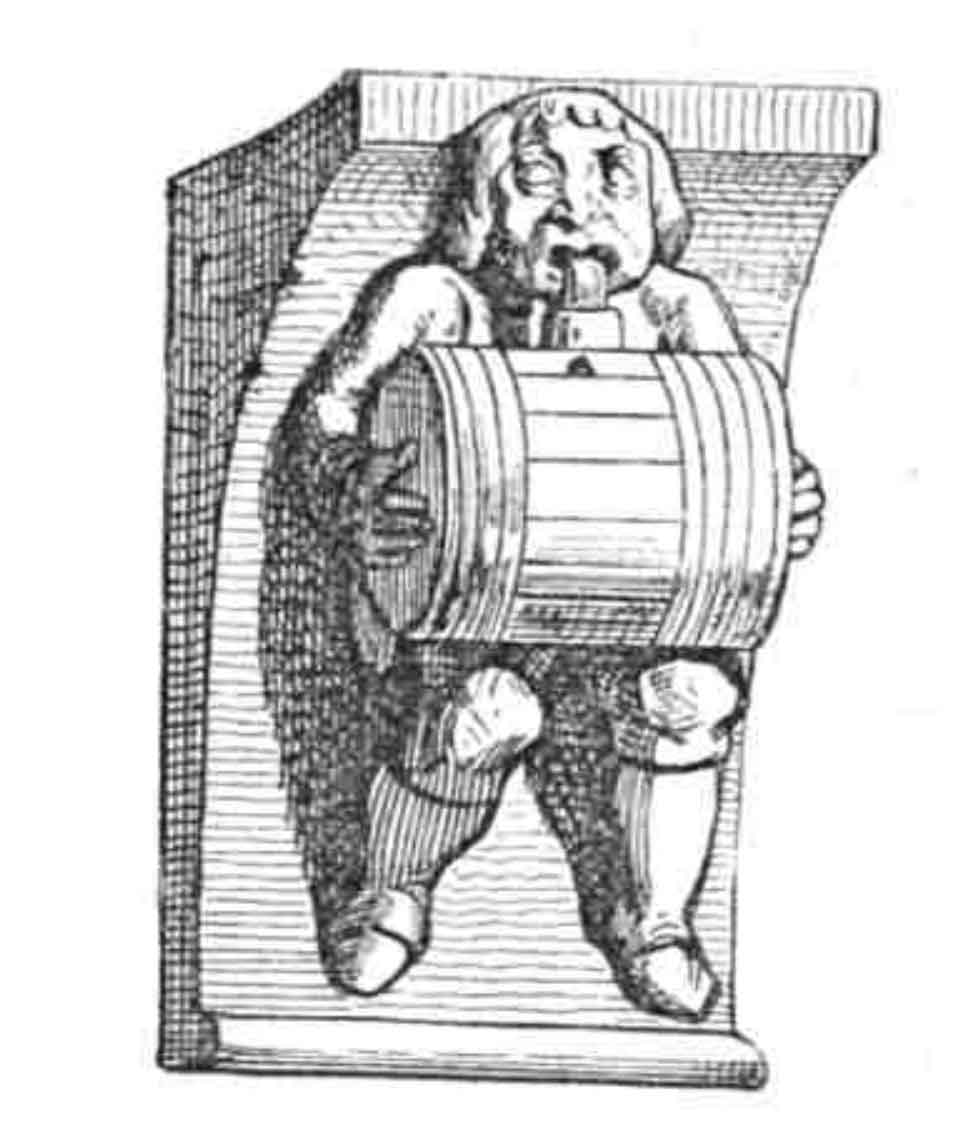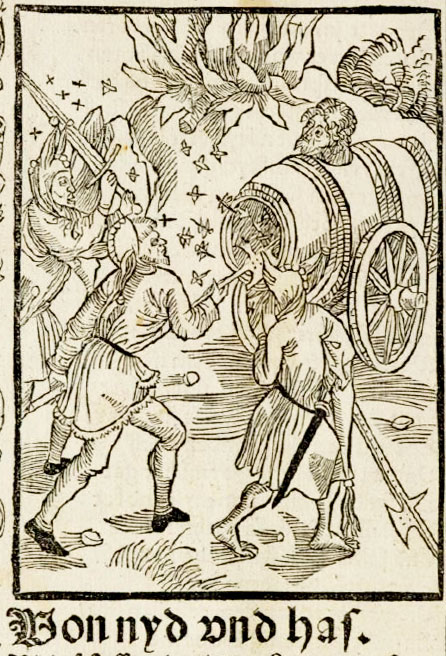If your carriers and bargemen bringing for the provision of your houses a certain number of tuns, pipes, and puncheons
Original French: Si vos chartiers & nautonniers amenans pour la prouiſion de vos maiſons certain nombre de tõneaulx, pippes, & buſſars
Modern French: Si vos chartiers & nautonniers amenans pour la provision de vos maisons certain nombre de tonneaulx, pippes, & bussars
Notes
Carriers and bargemen
Three Peasants in Conversation

Albrecht Durer (1471-1528), Three Peasants in Conversation (Les trois paysans), circa 1497, engraving
L’ivrognerie

Figure de l’église Saint Gille, à Malestroit (Bretagne). L’ivrognerie est presque aussi fréquemment répétée sur les murs des églises que l’avarice; les sculpteurs ne manquaient pas de modèles de buveurs. A l’église Saint-Gille à Malestroit, on voit un bas-relief, symbole de l’ivrognerie. Un homme introduit sa langue par la bonde d’un tonneau, comme pour le humer tout entier.
bussar
Si vos chartiers & nautonniers amenans pour la prouiſion de vos maiſons certain nombre de tõneaulx, pippes, & buſſars
bussar
Tonneau, d’environ 268 litres.
tun
tun (n.) “large cask,” especially one for wine, ale, or beer, Old English tunne “tun, cask, barrel,” a general North Sea Germanic word (compare Old Frisian tunne, Middle Dutch tonne, Old High German tunna, German tonne), also found in Medieval Latin tunna (9c.) and Old French tonne (diminutive tonneau); perhaps from a Celtic source (compare Middle Irish, Gaelic tunna, Old Irish toun “hide, skin”). Tun-dish (late 14c.) was a funnel made to fit into the bung of a tun.
pipe
pipe (n. 2) type of cask, early 14c., from Old French pipe “liquid measure, cask for wine,” from a special use of Vulgar Latin *pipa “pipe” (see pipe (n.1)).
pipe (n.1) Old English pipe “musical wind instrument,” also “tube to convey water,” from Vulgar Latin *pipa “a pipe, tube-shaped musical instrument” (source also of Italian pipa, French pipe, Old Frisian pipe, German Pfeife, Danish pibe, Swedish pipa, Dutch pijp), a back-formation from Latin pipare “to chirp or peep,” of imitative origin. All tubular senses ultimately derive from “small reed, whistle.” Meaning “device for smoking” first recorded 1590s.
puncheon
puncheon (n.1) “barrel or cask for soap or liquor; iron vessel,” c. 1400, from Old French ponchon, ponson “wine vessel” (13c.), of unknown origin. Uncertain connection with puncheon “slab of timber, strut, wooden beam used as a support in building” (mid-14c.). Punch (n.2) in the drink sense is too late to be the source of the “cask” sense.
